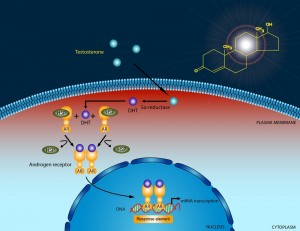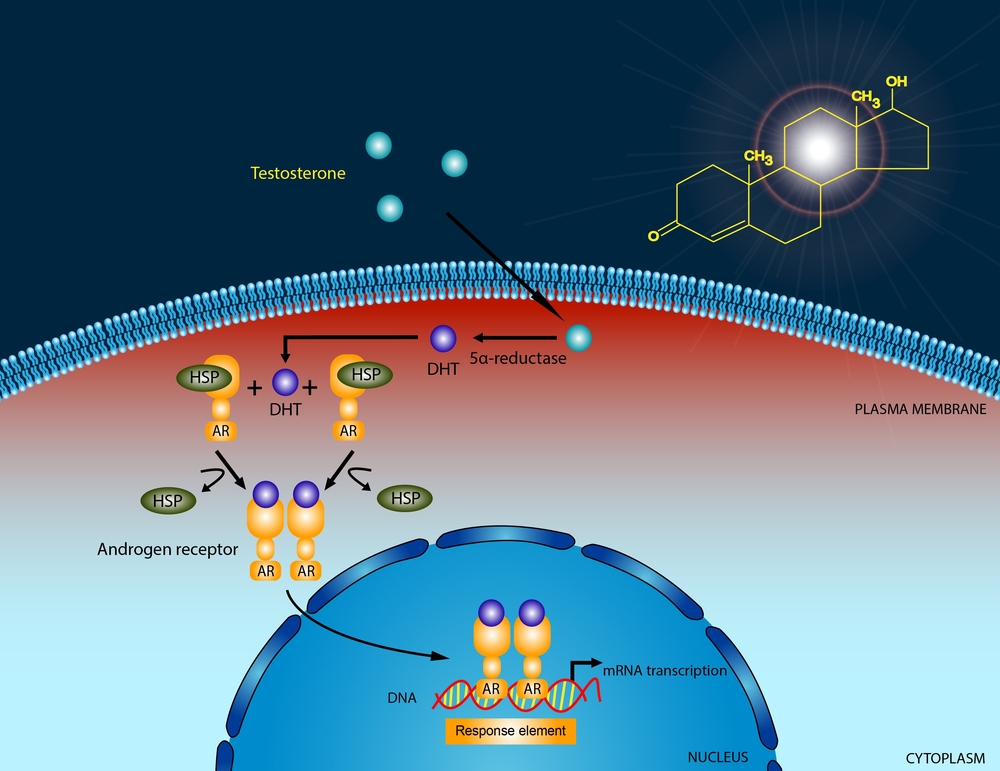 Testosterone, a hormone given to men with hypogonadism, does not appear to increase the risk of prostate cancer, despite concerns in the scientific community. Ahmad Haider, MD, PhD, a urologist at Bremerhaven in Germany, led the investigation and published “Incidence of Prostate Cancer in Hypogonadal Men Receiving Testosterone Therapy: Observations from 5-Year Median Followup of 3 Registries” in The Journal of Urology to describe his group’s findings.
Testosterone, a hormone given to men with hypogonadism, does not appear to increase the risk of prostate cancer, despite concerns in the scientific community. Ahmad Haider, MD, PhD, a urologist at Bremerhaven in Germany, led the investigation and published “Incidence of Prostate Cancer in Hypogonadal Men Receiving Testosterone Therapy: Observations from 5-Year Median Followup of 3 Registries” in The Journal of Urology to describe his group’s findings.
“Although considerable evidence exists indicating no relationship between testosterone and increased risk of developing prostate cancer, decades of physician training with the notion that testosterone is fuel for prostate cancer made it difficult to dispel such fallacy and the myth continued to persist,” said Dr. Haider in a news release. “Nevertheless, in the absence of long-term follow-up data demonstrating reduced risk of prostate cancer in hypogonadal men who are receiving testosterone therapy, considerable skepticism remains throughout the medical community and this is an expected natural and acceptable path of medical and scientific discourse.”
Hypogonadism is a condition in which there is a decrease in either or both of the two major functions of the testes: sperm production and/or testosterone production. This abnormality can result from disease of the testes or disease of the pituitary or hypothalamus.
To support or dispel these beliefs, Dr. Haider’s team examined three ongoing, prospective studies held in parallel that included over 1,000 men. Treatment consisted of 12-week intervals of testosterone undecanoate injections if total testosterone was 12.1 nmol/L or less and hypogonadism was diagnosed. The patients were followed for up to 17 years after testosterone therapy.
During the time of follow-ups, only 11 of 1,023 patients (1%) had biopsies diagnosed with prostate cancer. The percentages identified in the studies were lower than those reported by either the Prostate, Lung, Colorectal, and Ovarian Cancer Screening Trial (PLCO) or the European Randomized Study of Screening for Prostate Cancer (ERSPC).
“In view of the current evidence, clinicians are compelled to think [withholding testosterone therapy] over and cannot justify withholding testosterone therapy in hypogonadal men, also in men who have been successfully treated for prostate cancer,” said Dr. Haider. If used correctly, testosterone therapy is safe for hypogonadal men.

